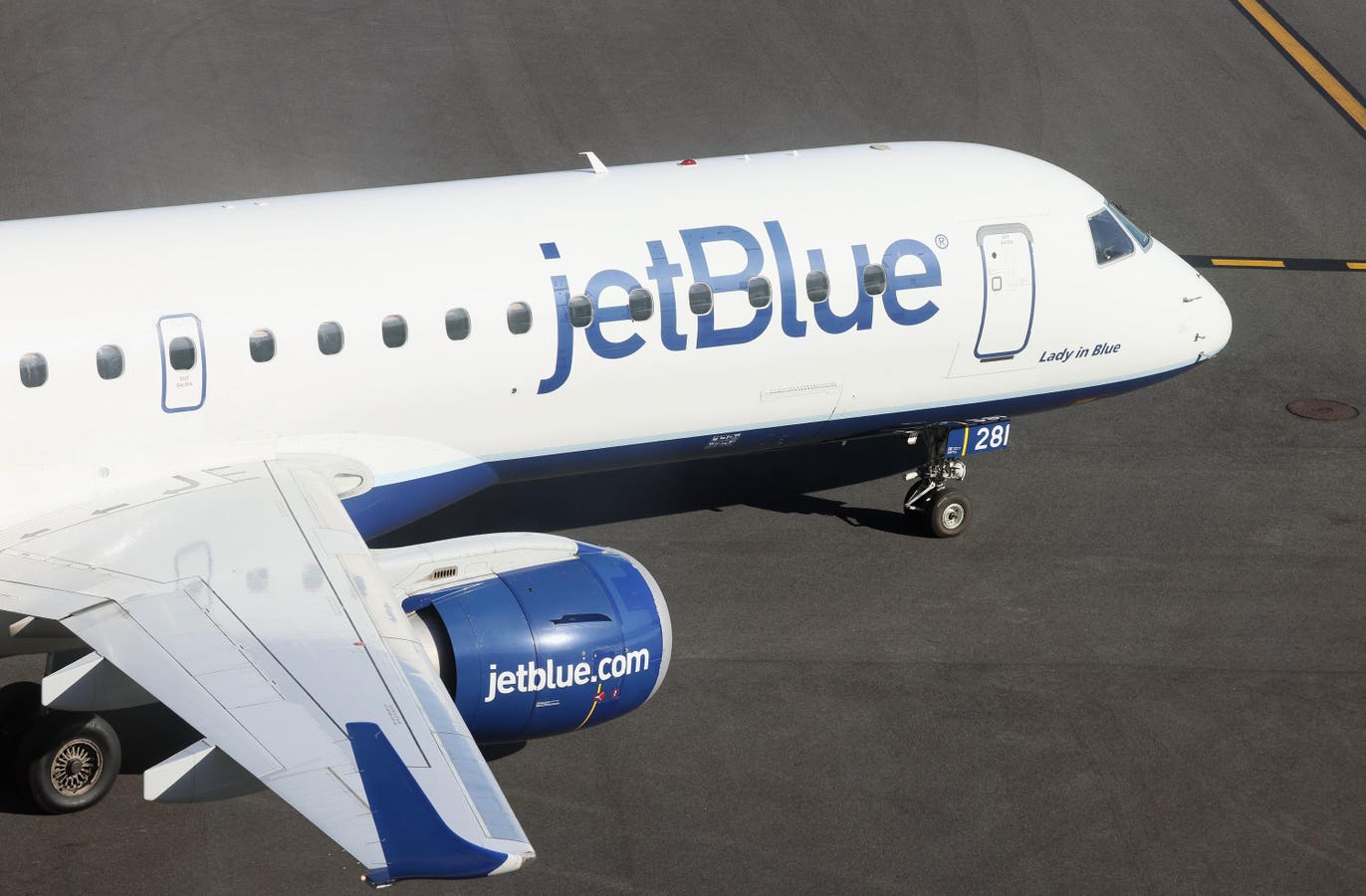JetBlue’s bold plans to expand premium low-cost transatlantic flights ran into setbacks as the airline lost slots at Schiphol Airport for Summer 2024. JetBlue faced challenges establishing these flights for the same reasons they have now been canceled: increased pressure to reduce noise and maintain environmental standards at Amsterdam’s Schiphol Airport.
The Dutch government has limited the number of flight operations at Schiphol principally to reduce noise and carbon emissions. The new regulations will reduce flights at Schiphol Airport from 500,000 to 460,000 annually starting in the Summer of 2024. Furthermore, the government plans to reduce flights at Schiphol to 452,500 beginning in the Winter of 2024. These environmental plans are unpopular with airlines, including KLM and other European carriers.
JetBlue Views Schiphol Policy As Challenge To Low-Cost Competition
JetBlue, however, sees this as a policy challenge against low-cost entry in the profitable transatlantic market. It claimed so when requesting the U.S. Department of Transportation’s intervention to establish the Amsterdam route in February of this year.
The airline claimed that Airport Coordination Netherlands, ACNL, in first rejecting its planned Amsterdam service, “blatantly discriminates against low-cost carrier business model choices and other airlines that elect not to be part of an international immunized alliance.”
JetBlue later withdrew its initial complaint with the U.S. DOT after receiving slots at Schiphol for the Winter 2023/2024 season. The airline assumed the new flights would make its operations eligible for “historic status” at Schiphol, making it immune to the flight restrictions and allowing JetBlue to fly to Amsterdam year-round.
However, even then, JetBlue had doubts. The airline asked the U.S. DOT to dismiss its original complaint “without prejudice.” This would allow JetBlue to refile the International Air Transportation Fair Competitive Practices Act complaint if necessary.
At the end of September, JetBlue Airways, facing the imminent cancellation of its newly launched Amsterdam service, once again filed a complaint against the Dutch government and the European Union under the IATFCPA.
Anticipating the inevitable in October, JetBlue asked the U.S. Department of Transportation to ban KLM from New York’s John F. Kennedy International Airport if planned Schiphol Airport restrictions affected its operations, saying they violate the U.S.-EU Air Transport Agreement.
It was all for naught. This week, the ACNL announced that airlines without historic rights at Amsterdam’s Schiphol airport, including JetBlue, will not be allocated slots for summer 2024.
Environmental Controls Lead To Conflicts In International Airline Competition
While there have been historic, prolonged policy disputes over introducing low-cost airline transatlantic service, the flight restrictions at Schiphol negatively impact all airlines, including the 104-year-old Dutch flagship KLM Royal Dutch Airlines.
Rather than a measure of the effectiveness of low-cost transatlantic competition, this situation is a test case for harmonized policy between the U.S. and the European Union on environmental restrictions that affect all international aviation.
The ACNL decision does not just target JetBlue’s flights. Even airlines with long-established historic rights to fly to Schiphol will have 3.1% fewer slots next summer, supporting the Dutch government’s plan.
The International Air Transport Association, European Business Aviation Association, European Regions Airline Association, and Airports Council International Europe have all registered complaints with the European Commission and European courts against flight reductions at Schiphol.
KLM described the government’s decision as “incomprehensible,” warning of its negative impact on the Dutch economy.
“We submitted the cleaner, quieter, and more efficient plan. In it, we show that we can achieve the noise reduction targets while maintaining the current number of flight movements, maintaining the connection between the Netherlands as a trading nation and the rest of the world,” said KLM CEO Marjan Rintel.
Willie Walsh, Director General of the International Air Transport Association, has also objected to the Dutch government’s decision. “Our opposition is not about the merits of reducing noise: airlines are determined to do so and have plans and investments in place to that effect. This is about ensuring that the lawful internationally agreed process for managing noise is adhered to so that the benefits of aviation generated by Schiphol can be safeguarded for the people of the Netherlands as a whole,” Walsh said.
Olivier Jankovec, Director General of ACI EUROPE, said the restrictions come “at the expense of the Dutch economy and jobs. We are calling upon the European Commission to urgently ensure the respect of the Balance Approach principles as per EU law.”
Skillful International Negotiations Required
The argument over Schiphol crossing the Atlantic will be a test case of the effectiveness of stricter European restrictions on civil aviation in aid of environmental targets.
The U.S. DOT might act on the complaints of JetBlue and a similar complaint filed by Airlines for America, which represents American Airlines, Delta Air Lines
DAL
For the Dutch carrier and the world’s oldest airline, losing its flight access to New Amsterdam would be historically ironic and will likely be hotly contested. But perhaps this contentious situation could result in something favorable for all involved if the U.S. can somehow persuade the Dutch to ease their policy.
The U.S. must maintain positive relationships with partners in the EU while avoiding a precedent that could lead to further restrictions from other countries implementing stricter aviation policies, including France.
The Dutch government has shown itself to be intransigent on flight numbers. This suggests that reducing the number of flights at Schiphol is the main aim of the government’s policy, with noise reductions as a secondary benefit. The escalation of the dispute to the EU Commission will be prolonged and the results uncertain.
For its part, Schiphol has an eight-point plan to promote quieter, cleaner, and more sustainable aviation. It includes restricting aircraft take-offs and landings between midnight and early morning and barring private jets.
Read the full article here





